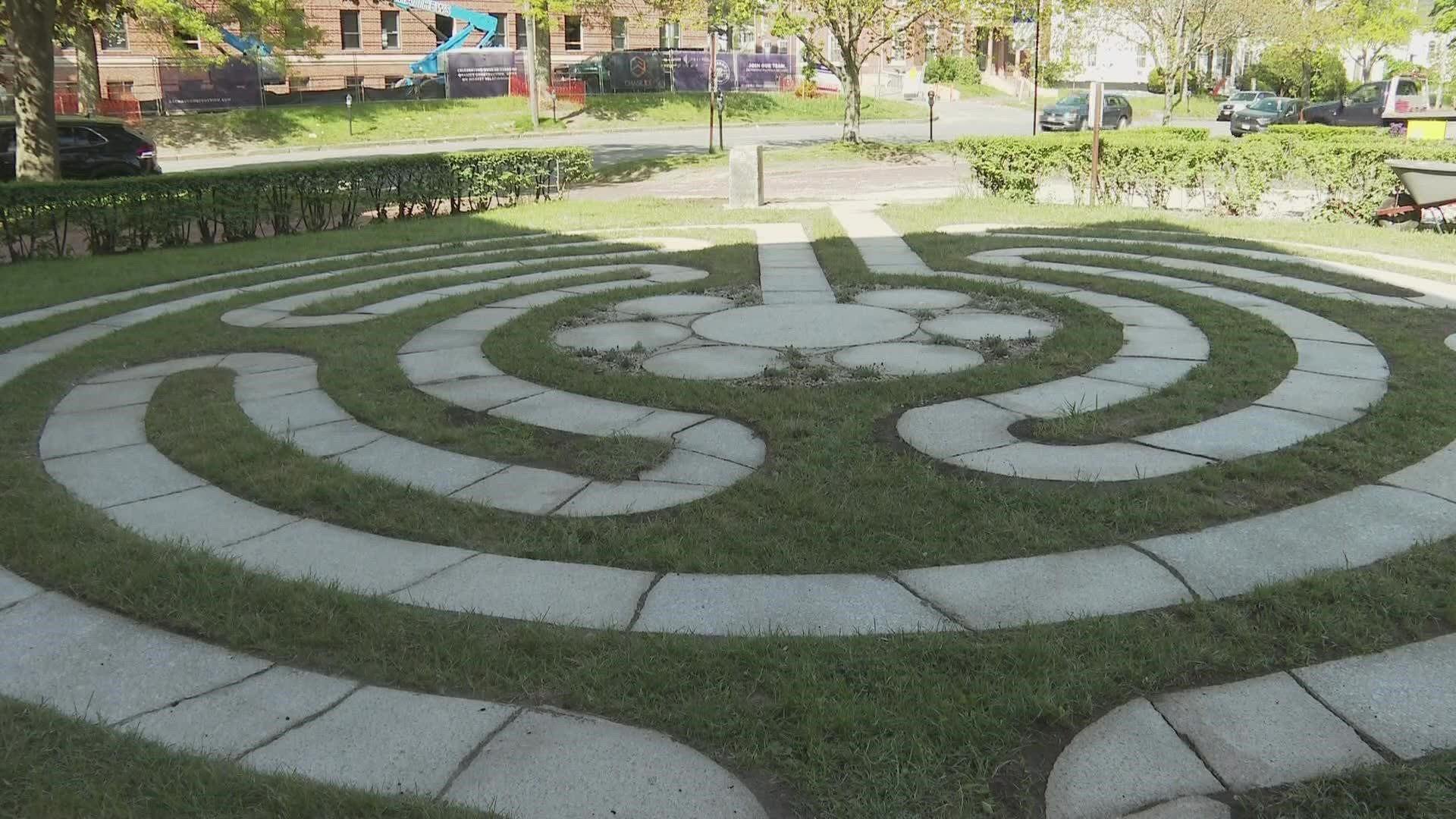PORTLAND, Maine — Downtown Portland has a new piece of art with its roots in ancient history.
Dean Ben Shambaugh and the leadership at St. Luke's Cathedral on State Street commissioned a granite labyrinth. While mazes confuse and trap those inside them, labyrinths guide visitors slowly to their centers.
"Labyrinths have become one of those portals; one of those ways people can enter the church, enter spiritual practices when they might be uncomfortable with traditional churches," Shambaugh explained.
The labyrinth is meant for meditation. Once on its path, a person can clear their mind and focus on their steps or focus on nothing until they reach the middle.
Shambaugh said St. Luke's labyrinth is for all. Its entrance faces the street so that if someone is walking by and wants a few moments of zen, they're welcome to it. If they feel inclined to step in for prayer, Shambaugh is happy then as well.
Jennifer Bear, a landscape architect who splits her time between Maine and France, offered to design and build St. Luke's labyrinth for free. As the final slabs were put into place, she said the experience was everything she could have hoped for.
"It's really rewarding because people use it afterwards. They get a lot from it," she smiled. "There's a big following for labyrinths."
Proving Bear right, NEWS CENTER Maine then visited the University of New England, where a labyrinth of small rocks was assembled in 2011 in a small patch of trees behind the school's art museum.
Cathleen Miller is an expert in history and leads meditation groups at the school and in the labyrinth. Since its construction, Miller has watched students and faculty escape to it. She said they use it as a wellness tool.
"I know that a lot of people feel really uncomfortable with stillness and quiet, and I think that we all need more of it, but it's hard to come by," she explained as she walked the winding path.
Stillness can be challenging to find, but labyrinths might be easier to find than we think.
Yadina Clark is a labyrinth expert at UMaine. She also runs the Labyrinths of New England social media accounts and works with the international Labyrinth Society. She said there are at least 250 documented labyrinths in New England.
"There's still a lot about the mind-body-spirit connections that we don't fully understand, and sometimes, there's no substitute for activities that bring those things together," she said.
Back at St. Luke's, Dean Shambaugh compared human life to walking a labyrinth.
"Our life is a journey, and we do end up at the center. But we don't always. We feel like we're getting close, but we don't always get there right away," he said. "But we will."
Whether seeking a higher power or the power to overcome finals week, a little ancient architecture just might do the trick.

